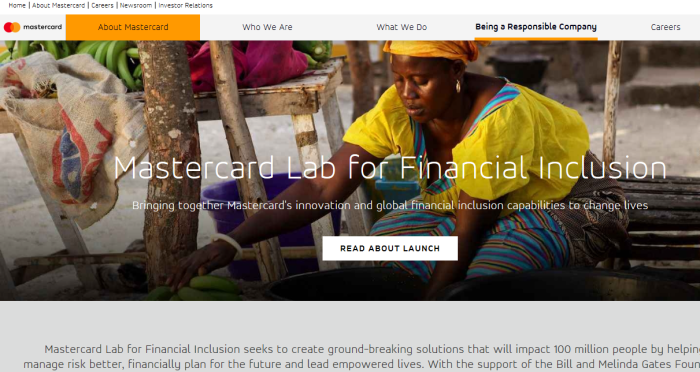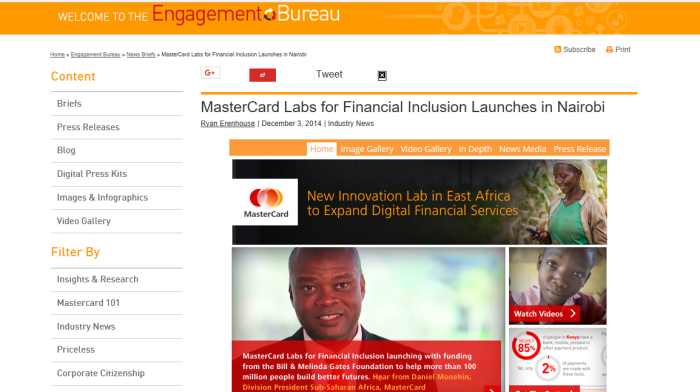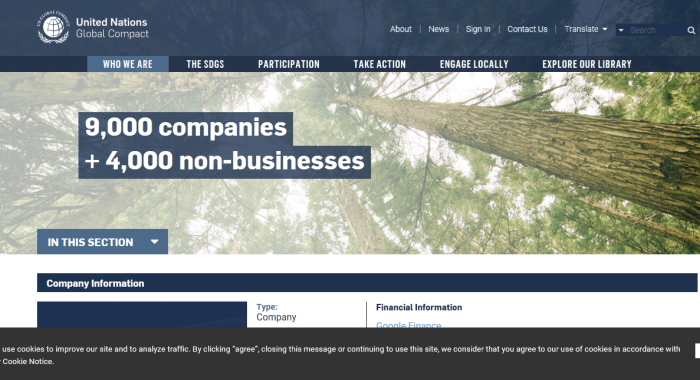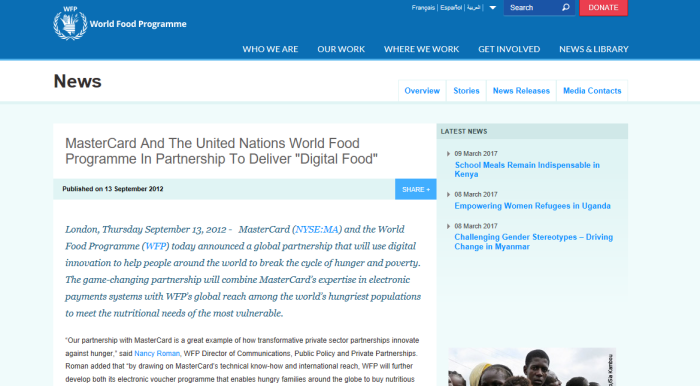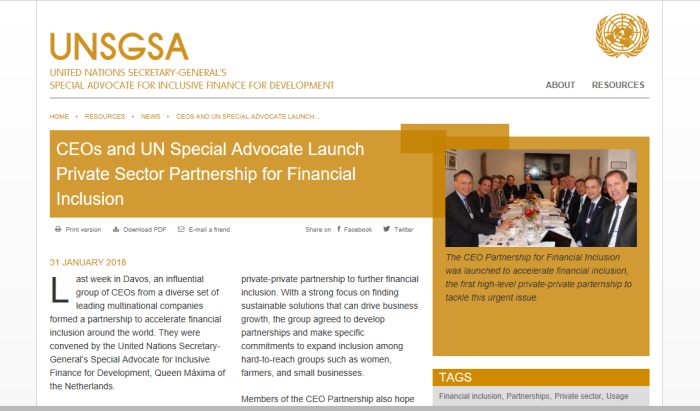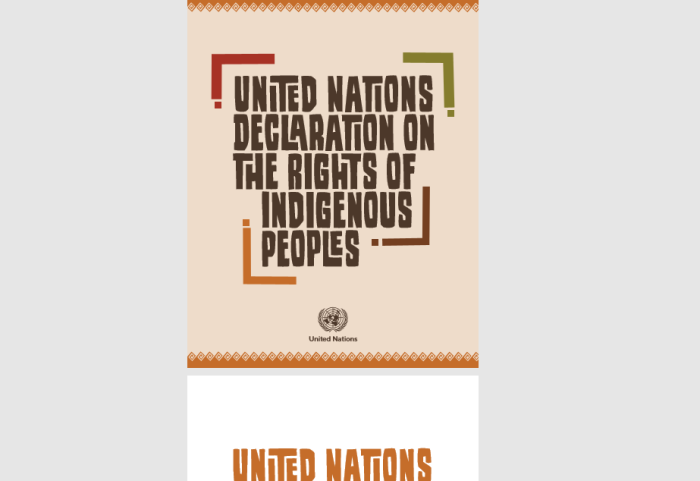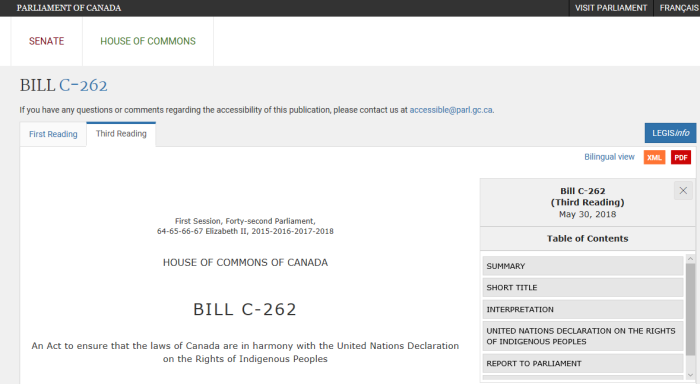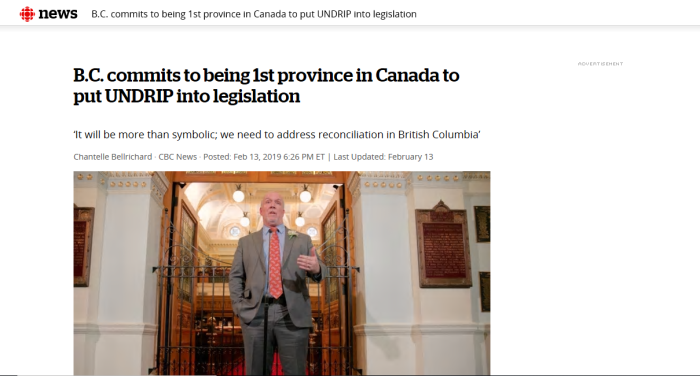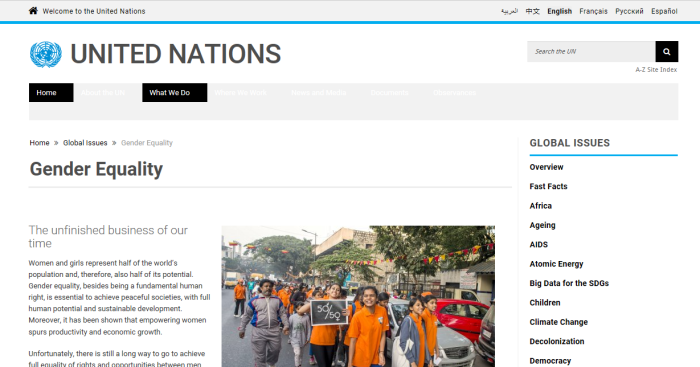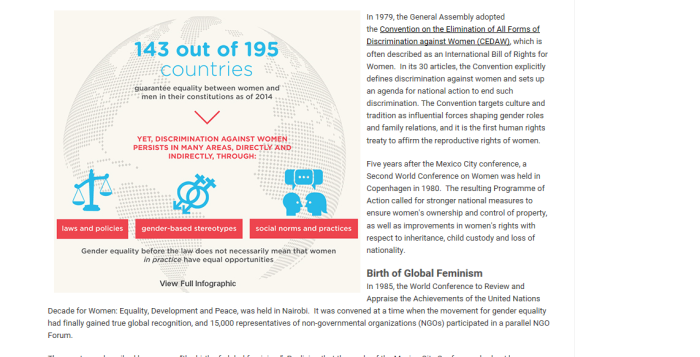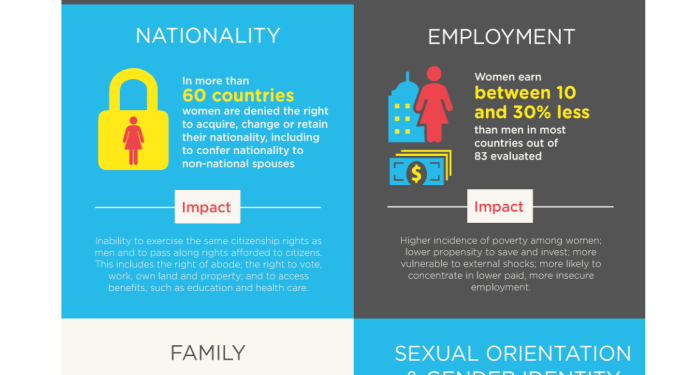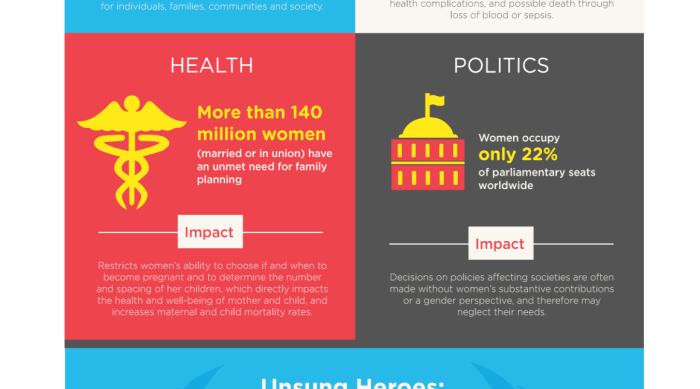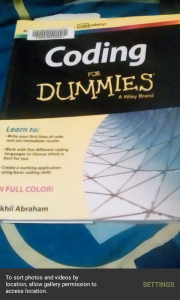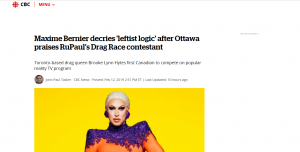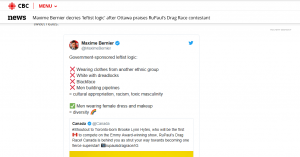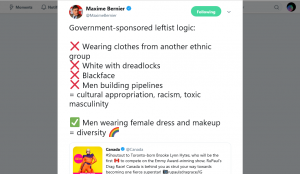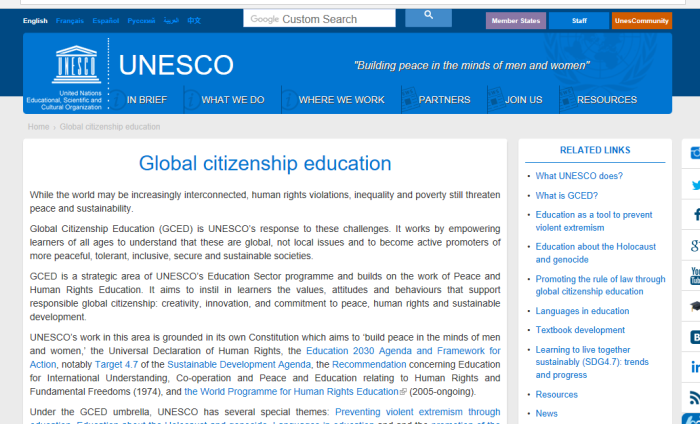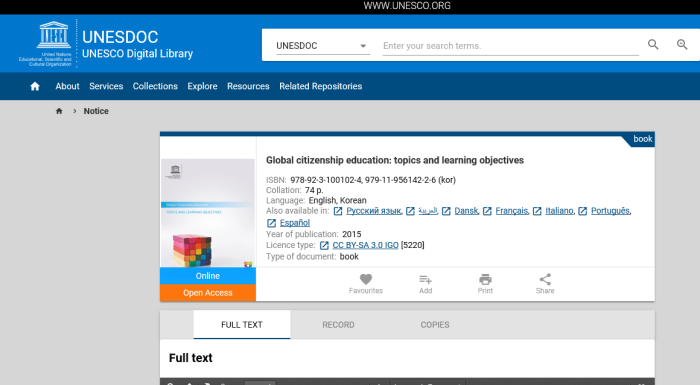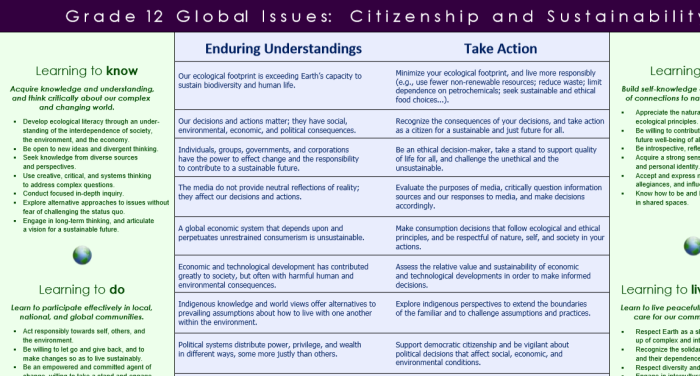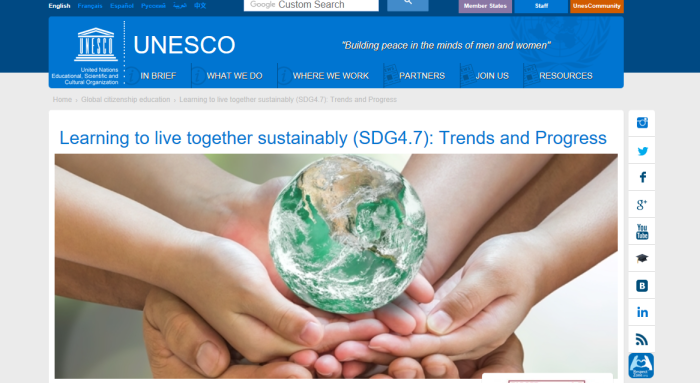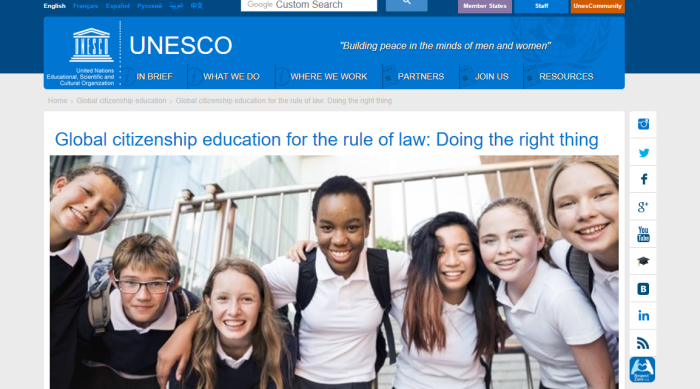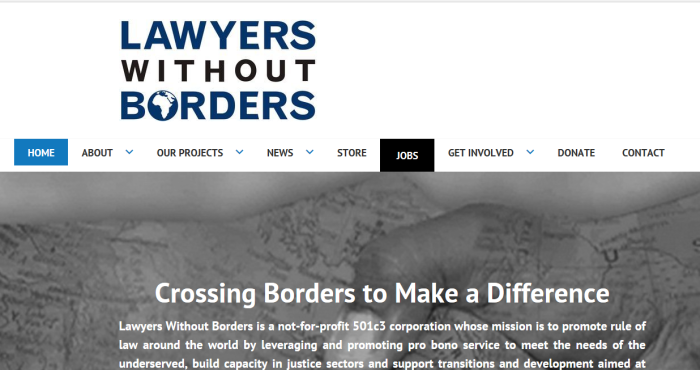
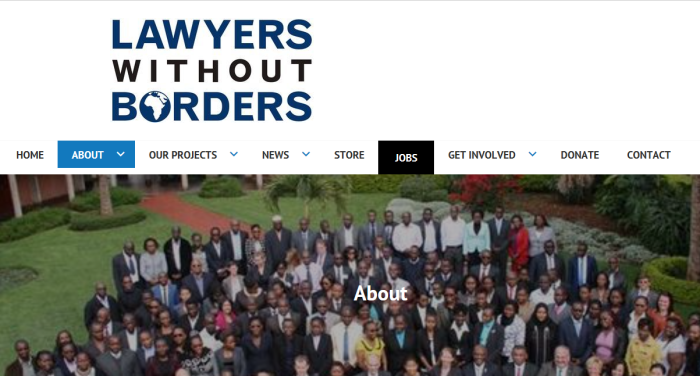
(Lawyers Without Borders, a non-profit)
1. Important Links
(1) https://lawyerswithoutborders.org
(2) http://archive.is/qdViA
(3) https://lawyerswithoutborders.org/our-supporters/
(4) http://archive.is/EkDOS
(5) https://lawyerswithoutborders.org/lwob/about/faq/
(6) https://lawyerswithoutborders.org/wp-content/uploads/2018/08/2016-2017-Biennial-Report.pdf
(8) 2016-2017-Biennial-Report
(9) https://lawyerswithoutborders.org/general-2/
(10) https://www.linklaters.com/en
(11) http://archive.is/nD3DM
(12) https://www.thomsonreuters.com
2. About The Group
LWOB Mission Statement
LWOB was conceived in January of 2000 to create a global association of lawyers committed to internationally oriented Pro Bono service and rule of law.
It is not clear from this. Does the group wish:
1/ To enforce and aid “local” people in their own countries?
2/ To promote a single legal standard?
Who Are LWOB Supporter?
If you or your organization would like to become a founding partner, pro bono supporter (in kind service), or financial supporter of LWOB, please contact us.
LWOB supporters include lawyers and institutions from the most highly regarded circles in the international legal community who provide generous financial support and pro bono human and in-kind resources to LWOB programming and projects. LWOB depends upon the generosity of its donors and funds from grants to underwrite operational overhead and non-grant funded rule of law programming.
LWOB welcomes its newest supporter, easyprojects.net and recognizes them for their generous donation of premium access to their project management tool: EasyProjects. The program is straightforward, intuitive and combines timeline management, assignment, time keeping and management all in one easy to use intuitive program. Thanks Easy Projects!
I find this very odd. LWOB doesn’t list who its supporters or partners are. Considering the support they give to a non-profit, a little name recognition seems the least they can do.
Who Is On LWOB Board?
LWOB is managed by three relatively small boards and an advisory council consisting of representatives from LWOB’s major private donors. Our board members on all three boards are “working” board members, who tend to be very engaged with the organization by contributing in areas of their respective expertise, volunteering to represent LWOB at events, or volunteering as trial advocacy trainers and trial observers. Our board members, while concentrated in the legal profession, include individuals from accountancy, public relations, and educational sectors.
– The Executive Board of Directors chaired by Anne B. Rudman, Esq. She is joined by board members: Steven Wade, Stephen Hibbard, and Joel Cohen.
– The International Advisory Board of Directors, chaired by Dr. Amii OMara Ottunnu
– The local Connecticut Advisory Board chaired by Priscilla Pappadia, Executive Director of Lawyers for Children America
– Advisory Council members are: Laura Ellsworth, Stephen Hibbard, Joel Cohen, Gregory Palmer, Saralyn Cohen, Sara Lulo and Andrew Jones.
Also interesting. They list who their board members are, but not any of the supporting organizations which are behind their work. Is there a reason they don’t want their names listed?
LWOB develops the programming typically supported by grants that cover the hard costs of producing the pro bono work product or deliverable. We commit to our pro bono partners that their work “will never end up in a file drawer.” Where 3rd party financial underwriting is not available, LWOB will often tap into an array of in-kind supporters to self-fund and implement worthwhile programs. The ongoing Liberia Digest Project (now 10 years old) is one such project that launched with 3rd party funding in 2008, but continues now with generous pro bono and in-kind support from Linklaters and Thomson Reuters.
While our work is apolitical and neutrally oriented, security issues that have arisen around the world prevent us from disclosing the location and timetables of our work in real time. We hope you will appreciate that our effort to keep our volunteers safe and out of harm’s way is paramount and essential to the long-term sustainability of our pro bono model.
Linklaters and Thompson “are” mentioned as supporters, but oddly not in the “supporters” section. It look a little browsing to find this. It would be nice to know who these other supporters are
Security issues prevent you from disclosing your location and timetables in real time. This comes across as a red flag. If all you were doing was providing basic legal services, who would care what your real timetable is? Why is it necessary to operate entirely behind the scene?
3. Some Red Flags
From the frequently asked questions section:
What is Lawyers Without Borders?
An organization that is bringing lawyers together from around the world to give back through pro-bono service — supporting rule of law, economic development, conflict resolution, peacebuilding and sustainability in the legal sector throughout the world.Do you represent individuals?
LWOB does not “represent” individuals. It is not a resource for individuals seeking personal pro bono representation.
From the main page:
Lawyers Without Borders is a not-for-profit 501c3 corporation whose mission is to promote rule of law around the world by leveraging and promoting pro bono service to meet the needs of the underserved, build capacity in justice sectors and support transitions and development aimed at protecting human rights, all with a neutral orientation.
So this group doesn’t actually represent clients. It just promotes rule of law around the world. Strange considering that they claim to prefer silent work to marketing.
LWOB holds special consultative status with the Economic and Social Council Division (ECOSOC) of the United Nations, has associative status with the United Nations Department of Public Information (DPI) and is accredited to the Department at the UN on the question of Palestine. LWOB and its lawyers engage regularly with the United Nations. LWOB online volunteers through the United Nations Online Volunteering service have been recognized for four successive years for their contributions to human rights and development through their work with LWOB.
Now we get to it: LWOB is basically a consulting firm for the UN. Although the site does not specify it, one can assume that a large amount of funding (if not most), comes from the UN.
LWOB doesn’t actually represents clients. Rather, they observe and consult in order to promote a certain “international law”. Yet another tentacle of the UN.

